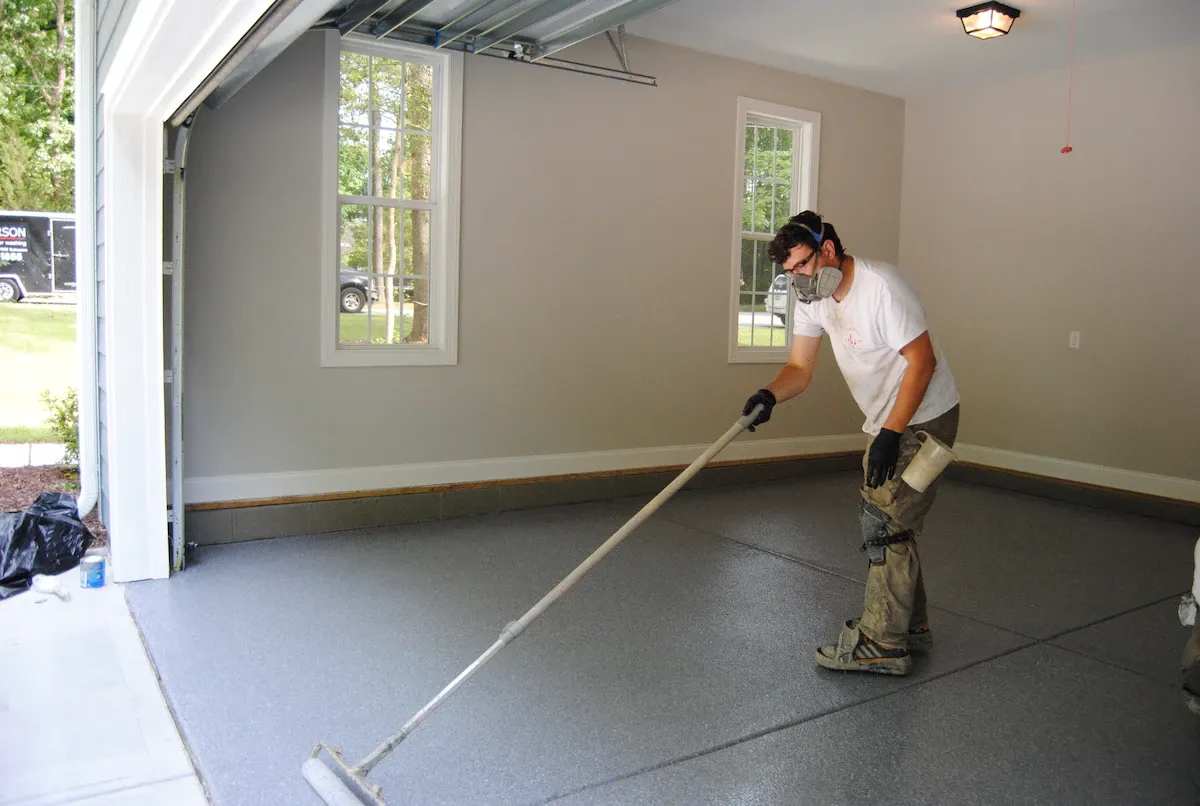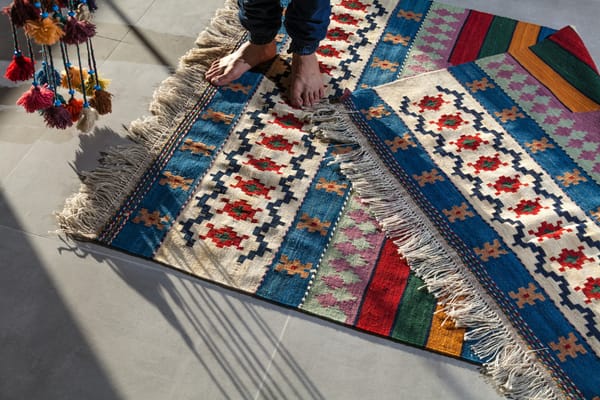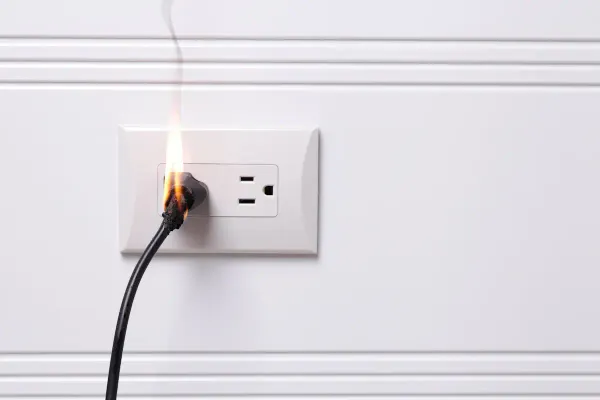Refresh the look of your home's concrete floors with a new coat of paint. Whether it's your basement floors, garage, patio, or porch, a little preparation and suitable materials can turn a DIY painting project into a stunning and durable finish.
Let's learn how to paint concrete floors from start to finish, including prepping the surface, choosing the perfect paint and primer, and achieving a professional look. Get ready to add some color and life to your concrete floors.
List of Tools and Materials Needed
Can you paint concrete floors all by yourself? The answer is an absolute yes! Before painting your concrete floors, you must arrange the following tools and materials:
- Concrete floor primer
- Concrete floor paint
- Paint roller and tray
- Paint brush
- Cleaning supplies
- Sandpaper, wire brush or concrete floor grinder
- Drop cloths
- Painters tape
- Masonry crack filler
How to Paint Concrete Floors
If you're looking to give your concrete floors a new lease on life, painting them is an easy and affordable option. Before you start, it's important to properly prep your floors by cleaning them thoroughly and repairing any cracks or damage. Once your floors are prepped, choose a paint specifically designed for concrete and make sure to follow the manufacturer's instructions carefully.
Typically, you'll need to apply a primer first and then at least two coats of paint. Allow ample drying time between each coat and make sure to avoid heavy foot traffic until the paint is fully cured. Here are the steps for painting concrete floors:
➢ Prepare The Surface
Clean the concrete floor thoroughly and remove any loose paint or debris. Sand down any rough or uneven areas.
➢ Apply Primer
Apply the concrete floor primer using a paint brush or roller to cover every inch of the surface. Give primer time to dry completely before moving on to the next step.
➢ Apply Paint
Pour the concrete paint into a paint tray by using a roller to apply it evenly over the surface. Use long, even strokes to avoid leaving streaks or drips. Typically, you'll want to use an acrylic latex concrete paint, an epoxy paint or an oil-based brand that is designed for specifically for concrete.
➢ Touch Up
Once the first coat of paint is dry, use a paintbrush to touch up any areas that you missed or need a second coat. You can also use an optional concrete sealer at this point, too.
Benefits Of Painting Concrete Floors
Painting concrete floors offers many advantages that can improve your home's overall appearance and functionality.
One of the main benefits of painting indoor concrete floors is that it can give your space a fresh, updated look. Your concrete floors must become worn or dated or show signs of damage or blemishes.
These floors also provide a durable and long-lasting finish that withstands heavy foot traffic and frequent use. It is ideal for high-traffic areas, such as basements, garages, patios, and porches. By painting your concrete floors, you'll improve their appearance and make them more resistant to damage as well as wear and tear.
Another benefit of painting concrete floors is that it can cover imperfections and blemishes, including cracks, chips, and stains. Whether your concrete floors have been exposed to the elements or have suffered from years of wear and tear, painting them can help to conceal these unsightly marks, making your space look cleaner and more attractive.
Finally, painting concrete floors can enhance your space's overall look and feel, giving it a warm and inviting atmosphere. Whether you opt for a bold and vibrant color or a more neutral shade, the right paint choice can significantly impact the look and feel of your home. With a little bit of effort, you can transform your concrete floors into a durable and attractive surface that will last for years to come.






